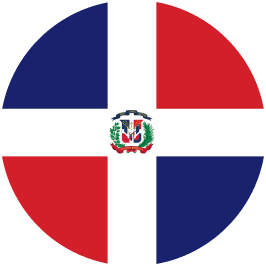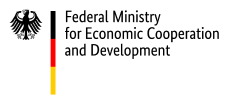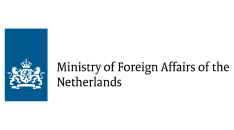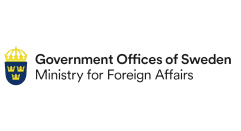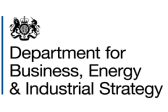São Tomé and Príncipe
Member Since
DEC 2016
Partners Involved
AfDB, EIB, EU, FAO, GCF, GEF, the Netherlands, UNCDF, UN Habitat, UNDP, UNIDO, and the World Bank

By updating its NDC this year, STP reaffirms its commitment towards the reduction of greenhouse gas emissions by 27 percent through the production of renewables (injecting 50 percent into the national grid by 2030), as well as its increased efforts ensuring the resilience of the most vulnerable communities. This NDC updated under the coordination of the General Directorate of Environment with the support of UNDP and NDC Partnership demonstrates São Tomé and Príncipe’s continued engagement, at the highest levels, of working towards sustainable low-carbon policies and climate-resilience, as well as the country’s contribution to reducing emissions and increasing resilience against the adverse effects of climate change.”
Osvaldo Cravid Viegas d’Abreu
Minister of Infrastructures and Natural Resources
São Tomé and Príncipe (STP) is making significant strides in advancing its climate-development agenda. The country has taken an inclusive and whole-of-society approach to its mitigation and adaptation actions and is working to integrate climate change into core planning and budgeting processes at national and subnational levels. In its enhanced NDC, the African island nation is introducing new sectors: transport, waste and water supply, while aiming for increased ambition in the clean energy sector. The NDC’s adaptation component is also being improved by identifying and mapping climate risk, exposure, and vulnerability hotspots at subnational and local/community levels and by prioritizing climate change adaptation actions and investments based on quantified and scientific-based analysis in synergy with SDG achievement.
A Whole-of-Society Approach to Mainstream Climate & Gender Into Sectoral Policies & Public Investments
The Government of STP acknowledges climate change is a multidisciplinary topic that needs to be approached through a whole-of-society approach to address multiple sectors and stakeholders’ needs and priorities. Chaired by the Presidential Office, the National Climate Change Committee plays a central role in STP’s climate action approach. The Committee draws its members from government and civil society and is responsible for facilitating the design, financing, implementation, and tracking of climate change programs and projects. The Partnership supports the Committee through the multi-sector NDC Implementation Plan design that serves as a planning, coordination, transparency, and resource mobilization tool for the government. The EU and UNDP have delivered technical support and capacity building to strengthen the Committee.
A gender-responsive approach is part and parcel of STP’s climate action. The government is improving the gender profile in the enhanced NDC, while also integrating gender into Public Investment Management (PIM) guidelines and defining the roles and responsibilities of ministries in gender mainstreaming. With African Development Bank support, the Gender Equity Institute is conducting awareness-raising campaigns, including gender equality, women & food safety, climate change, and environmental protection. UNDP has recruited a Gender Equality and Social Advisor to ensure gender and social mainstreaming with particular attention to the context of specific gender relations and vulnerable groups. The consultant is supporting the NDC update, ensuring that gender aspects and perspectives are integrated in the NDC update process and MRV system design, and by providing adequate input.
São Tomé and Príncipe is mainstreaming climate across several sectors. For instance, central planning and policy tools have been improved in the energy sector to accelerate the country’s transition to renewable energy and energy efficiency solutions. A coordinated group of Partnership members—including the AfDB, European Investment Bank, UNIDO, UNDP and the World Bank—is supporting the government to develop a Least Cost Plan for the Energy Sector, map renewable energy potential, develop a renewable energy strategy and plan, and develop the National Energy Efficiency Action Plan.
The Partnership is supports STP to mainstream disaster risk management into policies and planning instruments. The World Bank-supported georeferenced platform that informs policymakers and planners on areas vulnerable to climate change when designing roads, infrastructure, and planning urban and rural projects. The tool is being upgraded with UNCDF support to account for localized and improved data at the subnational level. STP is mainstreaming climate and gender into COVID-19 recovery measures and the country’s Public Investment Management (PIM) system with U.K. support through the Partnership’s Economic Advisory Initiative.
Implementing Transformational Climate Change Projects
Beyond planning and policy, Partnership members provide substantial support to accelerate climate measures ranging from coastal protection infrastructure, to climate-proofed transport network, to renewable energy projects, to large-scale forestry projects. Highlights include:
- From 2019 to 2024, the World Bank is providing USD29 million to improve the island’s road network’s connectivity, safety, and climate resilience and build related coastal climate resilience and emergency responses.
- The Netherlands is delivering USD21 million to support the construction and upgrading of protective infrastructure to shield public goods, relevant sights and urban areas along vulnerable coastlines and riparian areas.
- STP is also benefiting from the World Bank’s West Africa Coastal Areas Management Program (WACA). With WACA’s support, the country is engaging coastal communities’ efforts to tackle coastal erosion, flooding, pollution, and climate change adaptation.
Partnership members are further providing substantial financial support for mitigation initiatives. To boost renewables in the energy sector, the World Bank is channeling USD16 million into the São Tomé and Príncipe Power Sector Recovery Project with the European Investment Bank and other development partners contributing a further USD13 million. The project will expand an existing hydroelectric power plant and improving energy access and efficiency by upgrading the island’s low voltage network and strengthening the regulatory agency and the national energy company. Another relevant initiative, funded by GEF and implemented by FAO, is taking place in the forestry sector. Within the framework of project, (i) 7150 hectares of shady forests that support high quality agroforestry plantations are being restored and sustainably managed, (ii) 600 hectares of mangrove areas will be restored and managed for conservation and recreation purposes, and (iii) 27000 hectares of natural forests will be restored in degraded areas.
The government is collaborating with Partnership members to identify and prepare bankable projects and proposals to mobilize additional resources for increased climate action. For instance, UNDP supported technical and economic feasibility studies for three small-hydro projects and one photovoltaic plant. In the energy sector, a Partnership and UNDP-prepared PIN aims to supply renewable energy to all health facilities in the country. The Partnership supports a participatory and coordinated process for identifying, prioritizing, and preparing five project proposals to be submitted to climate change funds and bilateral donors.




